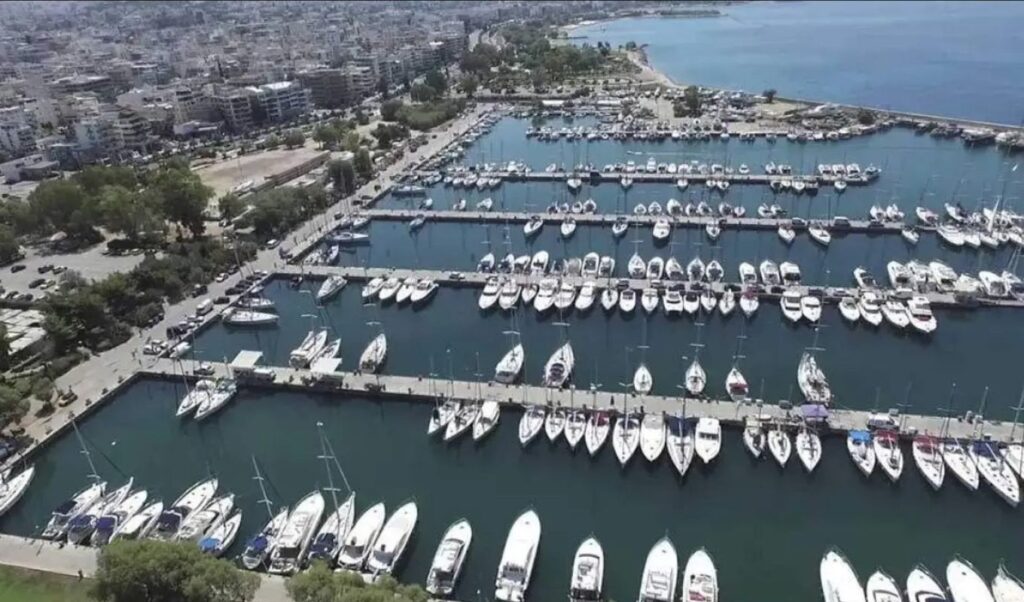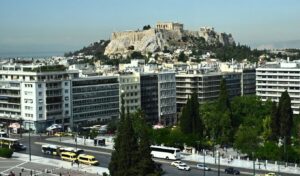The development of Greek marinas, considered a vital component for maritime tourism and the national economy, is evolving into one of the most controversial investment fields. Almost every project sparks confrontations between the State, investors, and local communities, with the judiciary having the final say. From Thessaloniki and Rhodes to Athens and Pylos, marinas are emerging as battlegrounds between the vision for development and the fear of overdevelopment. In Thessaloniki, the Aretsou Marina case has evolved into an open confrontation between the Superfund and the Municipality of Kalamaria. The CEO of the Superfund, Yannis Papachristou, announced that the tender for its development will begin in 2025, but this announcement triggered a new reaction from the municipal authority. The municipality denounces that the Superfund ignores the positions of both local government and the Central Macedonia Region and proceeds with a choice that leads, as it says, to the overdevelopment of the coastline. It also accuses the Fund of attempting to transform the marina into a real estate project, sidelining its function as a berthing infrastructure. The fact that an appeal to the Council of State is already pending further burdens the climate, with the municipality declaring its determination to defend the public character of the coastal zone.
Rhodes marina remains suspended
The Rhodes Marina, on the other hand, is a characteristic example of how an ambitious plan can freeze due to reactions. Rhodes Marinas S.A. has completed part of the port works, adding 180 new berths, bringing the total to 620, but the main project remains suspended. The master plan envisions the creation of a small-scale five-star hotel, as well as luxury residences, villas, and maisonettes, with extremely high construction costs since they are founded on the sea. Despite ambitions to upgrade Rhodes to the level of other major Mediterranean destinations, the investment has been appealed to the Council of State by citizens and environmental organizations, who argue that it alters the character of a public port infrastructure and violates constitutional and environmental provisions. At the center are the joint ministerial decisions of 2022 and 2023, which drastically changed the framework, opening the way for large-scale tourism and residential development. In Attica, the Agios Kosmas Marina is connected to the emblematic Hellinikon investment, which is why developments around it have broader significance. The Joint Ministerial Decision that modifies the construction terms and urban planning regime of the area sparked intense reactions from the Municipalities of Glyfada and Alimos, as well as the Metropolitan Pole Municipal Association. Local authorities have already appealed to the Council of State, considering that the creation of an artificial beach and increased construction will significantly burden the coastal zone and alter Glyfada’s fourth beach. On the other hand, Lamda Development proceeds with new deals
and presents Agios Kosmas Marina as an integral part of the Hellinikon master plan, with projects that will improve access, create a new tourist boat shelter, and enhance the area’s functionality.
Marinas: Goal to create a luxury yachting and tourism hub
In Messenia, Pylos Marina changed hands as, through the concession agreement, it passed to the management of D-Marin and TEMES. The investment, exceeding 10 million euros, provides for 130 berths and modern land facilities that will offer comprehensive services to visitors. The goal is to create a luxury yachting and tourism hub, enhancing Messenia’s image as a high-quality destination. However, complications were not absent here either. The Municipality of Pylos-Nestor filed a lawsuit at the Kalamata Court of First Instance, claiming part of the land zone. HRADF had proposed granting this section to the municipality for cultural events, but the proposal was rejected, resulting in the case taking the path of justice. In this case, however, signatures were finally exchanged between the Superfund and the investor, allowing the project to proceed. All these cases have a common denominator, which is the tension between the need for development projects that will upgrade tourism infrastructure and the fear that marinas will be transformed into profit-seeking projects that will deprive local communities of public spaces. Judicial pending cases delay the
projects, while social consensus remains elusive. The critical question is whether Greece will manage to utilize its marinas in a way that combines investment prospects with respect for the environment and the public character of the coastal zone.




